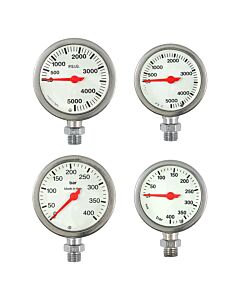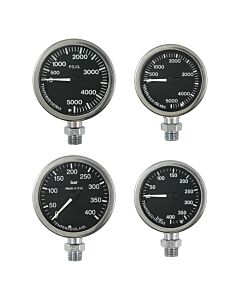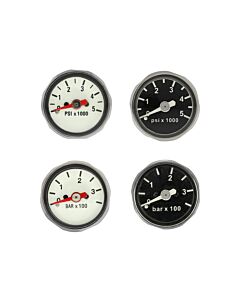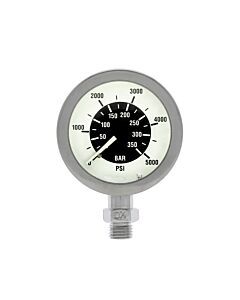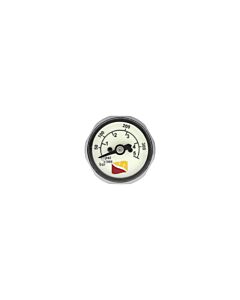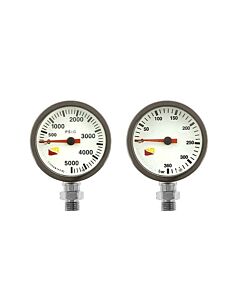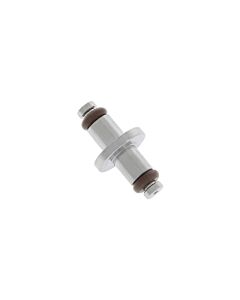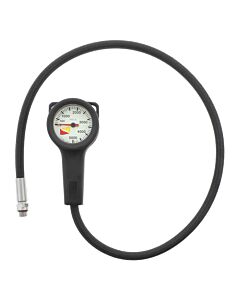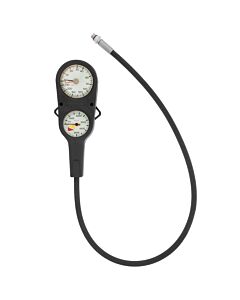Pressure Gauges (SPG)
-
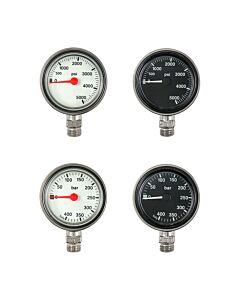 DGX Thin SPG, Naked$49.00
DGX Thin SPG, Naked$49.00 -
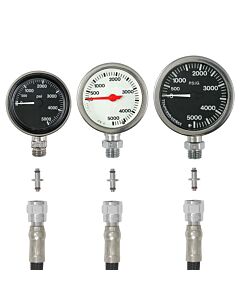 DGX Custom - SPG and Flex Hose Assembly, PSIAs low as $78.95
DGX Custom - SPG and Flex Hose Assembly, PSIAs low as $78.95 -
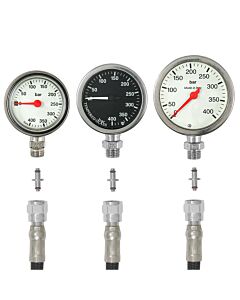 DGX Custom - SPG and Flex Hose Assembly, BARAs low as $78.95
DGX Custom - SPG and Flex Hose Assembly, BARAs low as $78.95 -
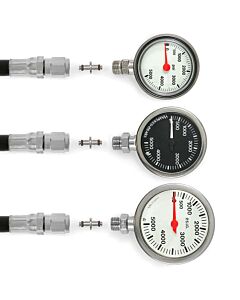 DGX Custom - SPG and Rubber Hose Assembly, PSIAs low as $78.95
DGX Custom - SPG and Rubber Hose Assembly, PSIAs low as $78.95 -
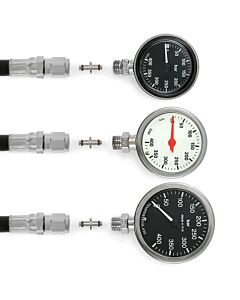 DGX Custom - SPG and Rubber Hose Assembly, BARAs low as $78.95
DGX Custom - SPG and Rubber Hose Assembly, BARAs low as $78.95 -
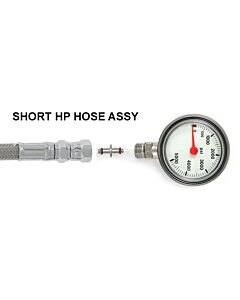 DGX Custom - SPG Assembly with SHORT HP HoseAs low as $71.95
DGX Custom - SPG Assembly with SHORT HP HoseAs low as $71.95 -
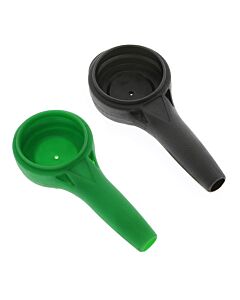 Thin Gauge Protective Boot$12.00
Thin Gauge Protective Boot$12.00
 WARNING
WARNING
Whenever you pressurize a mechanical gauge, it's possible that the tiny Bourdon Tube inside the gauge housing will crack and instantly release tank pressure in to the body of the gauge. This is a rare occurrence in modern submersible pressure gauges (SPG) but can happen with any pressure measuring device. When a failure does occur parts of the gauge, especially the face, can become a dangerous projectile. Best practice is to always open tank valves very slowly and to position yourself out of the direct line of any pressure gauge. While opening the tank valve, look away from the gauge and also do not hold the gauge housing itself in your hand or against your body.
Inside Submersible Pressure Gauges
As divers, we often make important decisions based on the cylinder pressures indicated by these very simple mechanical devices. We had our SPG manufacturer make us a 'custom' gauge without a dial, so you can see how a quality SPG works. The SPG has an all brass chrome plated housing with a tempered mineral glass face and features a beryllium copper coiled Bourdon tube mechanism with a rack and pinion movement. Watch the video to see the Bourdon tube bend slightly as the SPG is pressurized. As the tube flexes (it's easier to see in full screen), the indicator needle rotates around the dial in relationship to the movement of the tube.
SPG manufacturers all seem to reference the EN250 SCUBA equipment standards from the European Union for their accuracy specification of these devices. The EN250:2014 standard states "the accuracy of any indicator tested at the following fixed decreasing pressures shall be: ±15 bar at 300 bar; ±10 bar at 200 bar; ±10 bar at 100 bar; ±5 bar at 50 bar." The imperial units equivalent for this standard would be approximately: ±218 psi at 4351 psi; ±145 psi at 2901 psi; ±145 psi at 1450 psi; ±73 psi at 725 psi. In terms of a percentage, from about ±5% in the middle range to ±10% in the low range of the scale.
The nature of all mechanical pressure gauges is they are most accurate in the middle of the scale and least accurate at the ends of the scale. Even when perfectly calibrated in the mid-range, in our experience all mechanical SCUBA SPGs have poor accuracy at the very low end of the scale; possibly indicating significantly more (or less) breathing gas than what is really in the tank. That is why divemasters are often heard to say "Be back on the boat with 500 psi." Just to be clear, this is not a reflection on the quality of the gauge but rather a limitation of the mechanical Bourdon tube technology at the very low end of the gauge range.
As with all such Bourdon tube pressure gauge designs, their accuracy can be affected by a g-shock level impacts. Please handle your gauge with care. If it is dropped, you should verify the reading against a known value. Best practice is to periodically validate all your SPG's by comparing with both low and middle range values from another type of gauge such as our Accurate Cylinder Pressure Checker, or when very high confidence is required then our DGX Digital Cylinder Pressure Checker.
